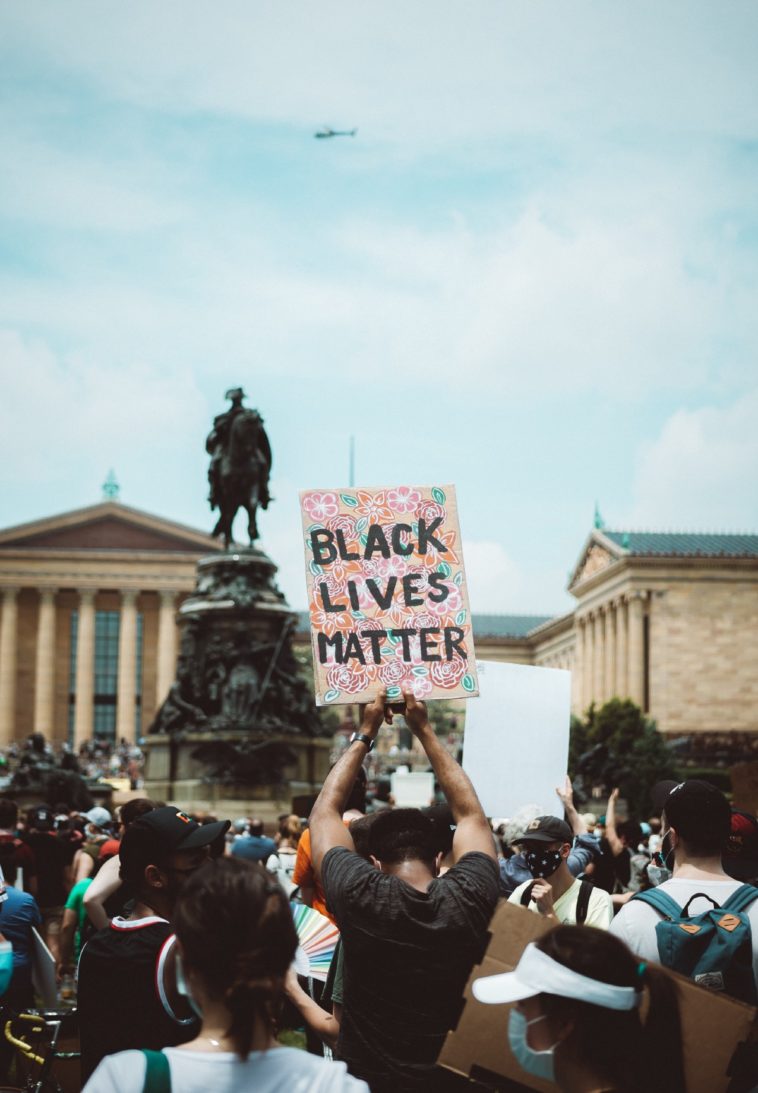h2>Dating : Why Black Lives Matter
I’m not actually going to explain why Black Lives Matter, because it’s such a rudimentary truth.
If you just don’t understand the cause for the movement, understand that systematic racism means we have embedded racism into our normal practice, making it difficult to identify if we don’t look. But even after looking, what has become apparent to me of late is that you’re never done looking; there is so much to understand about the lives of black people in America, and truly enforcing the ideology of equality in our own minds is not just a little adjustment.
As a preface — I will not begin by preaching, because it is not the time to act as if I’ve always been this passionate about fixing the issue of inequality in America, or been this in the know about the racial injustices we still have here. Or, for that matter, that I know what it feels like, or have an outstandingly unique perspective, or the most meaningful perspective. But in the past few weeks, I’ve learned more than I thought there was to be learned about how racism both hides and persists, and that’s the message I hope to share. There is more to know than we think, and so we should do what we can to start knowing.
The first thing that prompted my general understanding was The New Jim Crow, which I read for a class called The Problems of Prejudice in my freshman year of college. It’s scarily eye-opening, and I recommend it to everyone looking to educate themselves on the world that we live in from a perspective not clouded by those in power. The title says it all — the problems began with slavery, which were then were transformed into the Jim Crow Laws, which were translated into the War on Crime and the War on Drugs throughout the last 50 years, which led to the mass incarceration of black people and the normalcy of inequality. Michelle Alexander says:
“What has changed since the collapse of Jim Crow has less to do with the basic structure of our society than with the language we use to justify it.”
It blows the unknowing mind away to discover how much harm is being caused while going unnoticed the entire time — and that’s the scary part about current day racism. It’s been “redesigned”, as she says, but the racial caste system is still very much there.
If you’re unfamiliar with the War on Crime or the War on Drugs, I also suggest watching the documentary 13th. It’s just as moving, and just as revolutionary to a mind unfamiliar to what’s been happening. In summary, after we left the blatant segregation of black and white people behind, we entered the era of unspoken racism, by having the police target so-called “dangerous” people and “druggies” which were intentionally predominantly black people. And although crimes were indeed being committed by white people, and many black and white communities were using the same drugs, there became a disproportionate amount of cops in black neighborhoods, many with conscious or subconscious racial perspectives, leading us to the unjustified murders we have been witnessing for as long as I can remember.
The documentary also explains the American Legislative Exchange Council’s role in mass incarceration, keeping prisons filled, and the nation’s movement to become “tough on crime”. They pushed to lengthen prison sentences and increase the number of prison sentences, both of which were still targeting black communities, which made jail time a concern for 1 out of every 3 black men in America. This made the cycle of the racial caste system harder to escape, and painted an image of the black man as a criminal. Some companies that have worked with ALEC are ExxonMobil, AT&T, and State Farm Insurance, to name a few.
As a South-Asian American it’s easy to feel like this has nothing to do with us. We weren’t here when the problems started, we aren’t the main cause of the issues today, of course we care but it doesn’t feel like our place, and I don’t want to say the wrong thing —
Even if our biases weren’t born out of the issue of slavery in America, they exist and it’s our job to alter them because they damage they lives of so many people even if they live just subliminally within our minds. We cannot keep emphasizing the beauty of light skin, because it screams disapproval of our dark-skinned community. We cannot be more okay with marrying someone white than someone black for inexplicable reasons, or because of the racial stereotypes of “criminals” or the “dangerous”. We cannot mimic black culture when it makes us look “cool”, and then immediately dismiss it when it no longer does. We should understand the issues they are facing so we recognize our own biases, and tackle them in ourselves. That is our responsibility, if it is not anything more. Fix the biases that you find in yourself. Many cops that have murdered innocent black people don’t have the outwardly racist intent to hurt black people, but the subliminal fear of black people due to their inaccurate stereotype causes them to see danger when there is none, and act with violence when they shouldn’t. Subliminal racism is dangerous.
I’ve found that there’s a blockage of information entry into the brain when you live in a bubble. It makes sense, as you won’t dare to pop the bubble, but you need to find a way to osmosis the information into your bubble to truly understand it. These past few weeks things got through to me, which I’m upset I’ve never let through before. I see change in myself because of this movement, and I think the most powerful advocates I see are those that express how they have changed because of what they have learned before they begin preaching.



